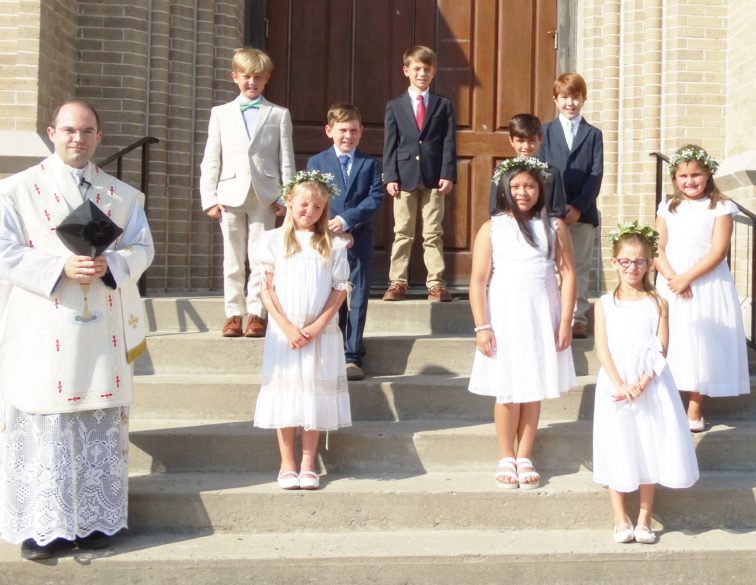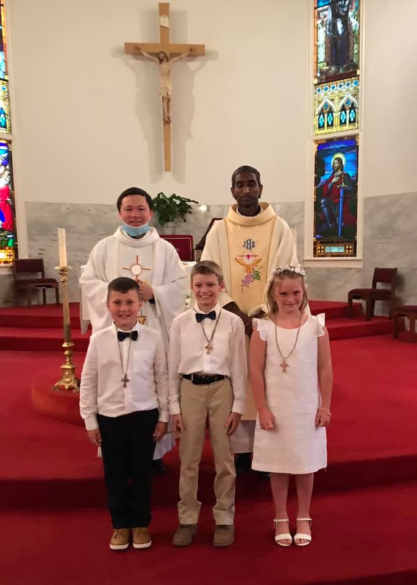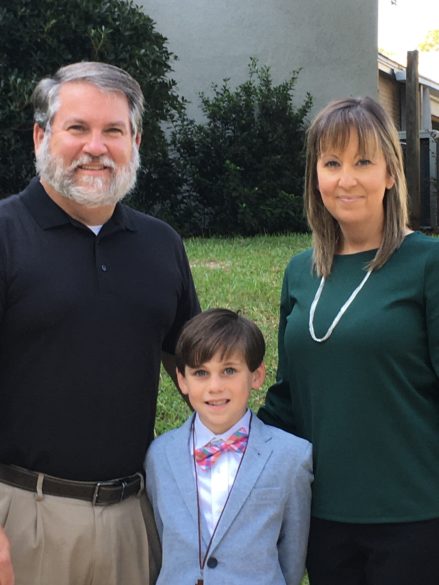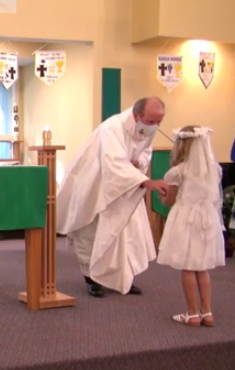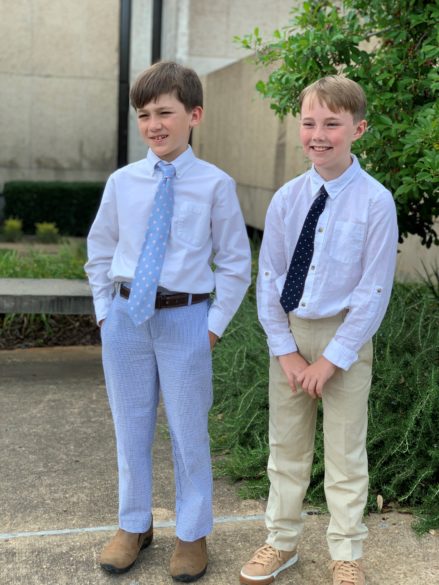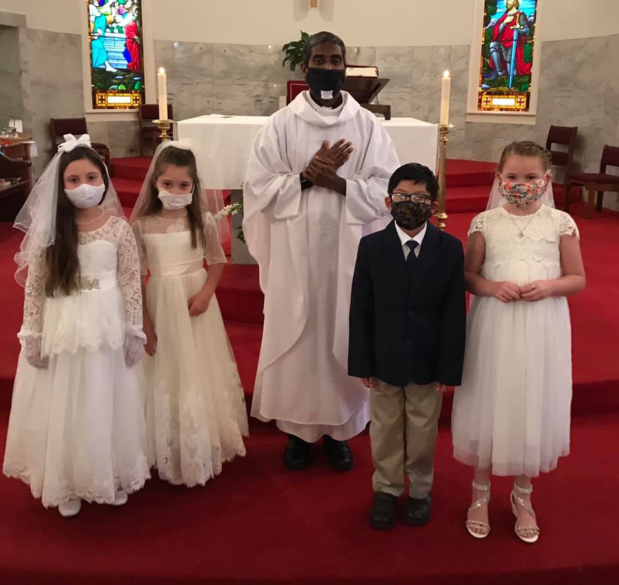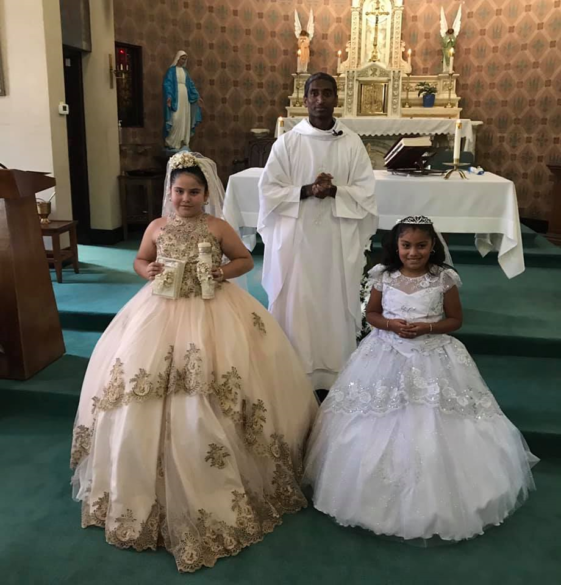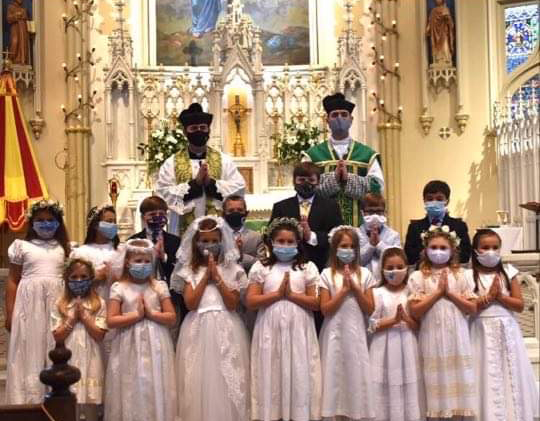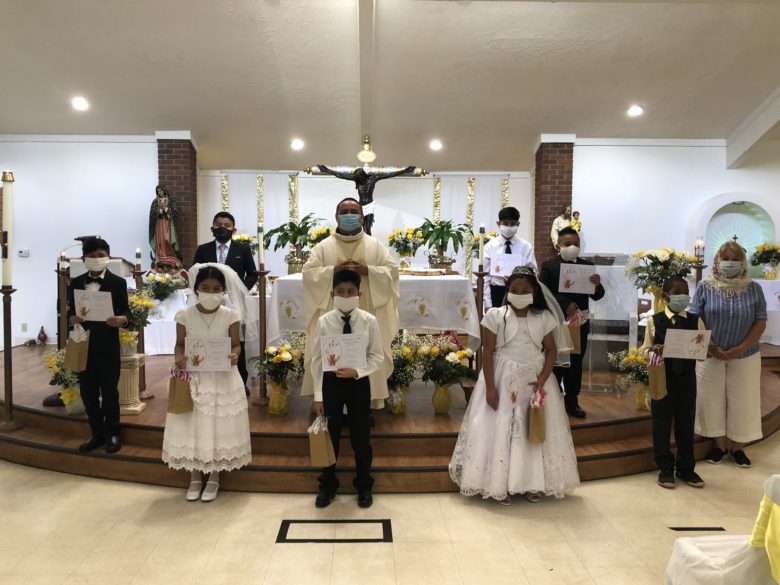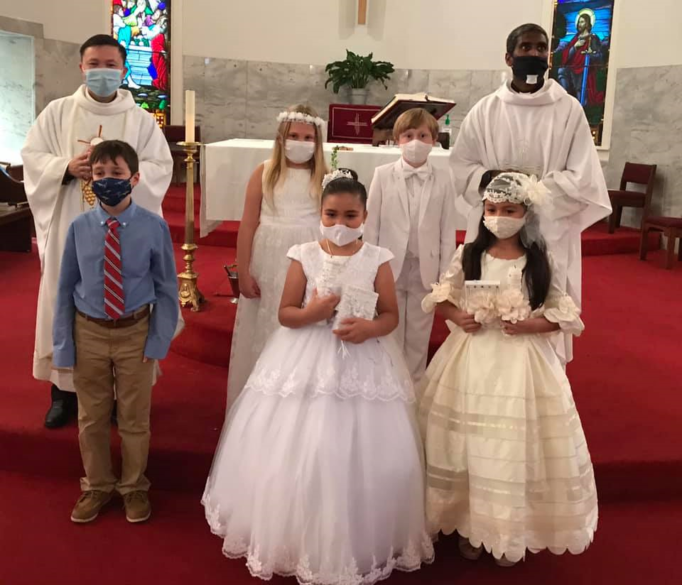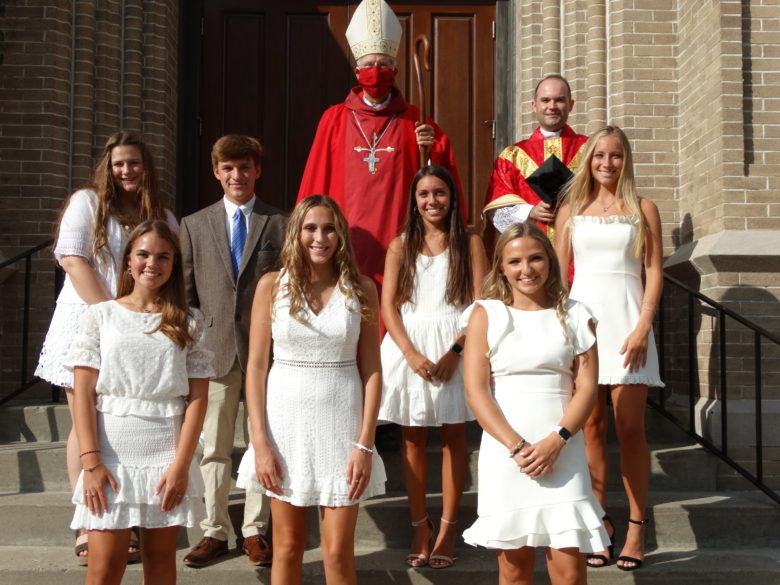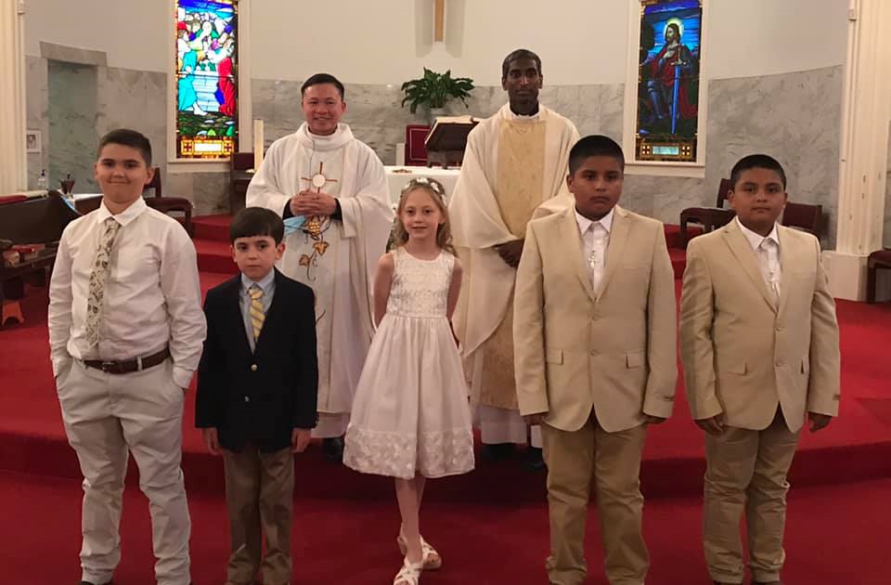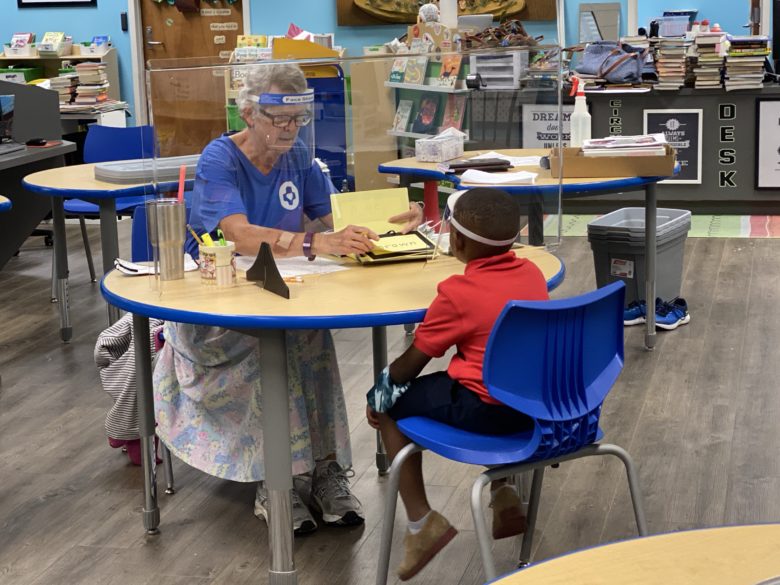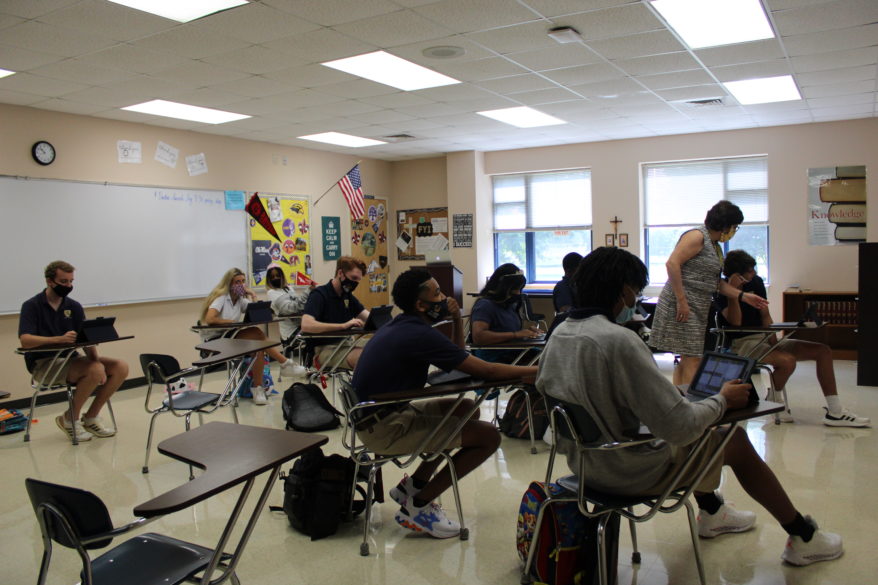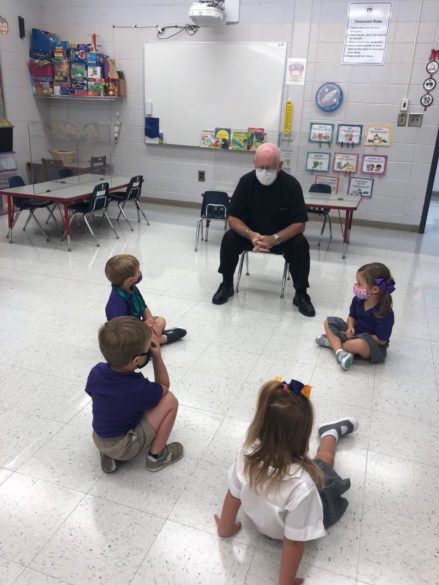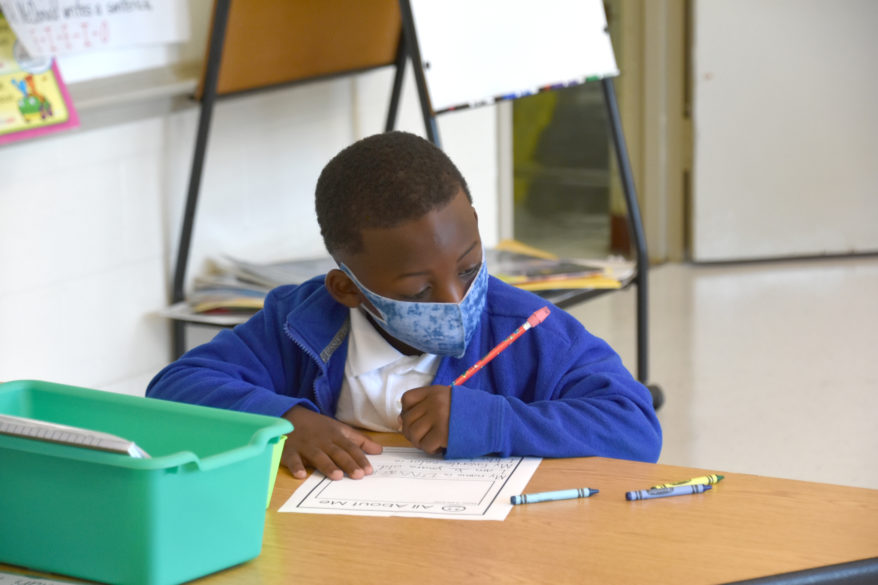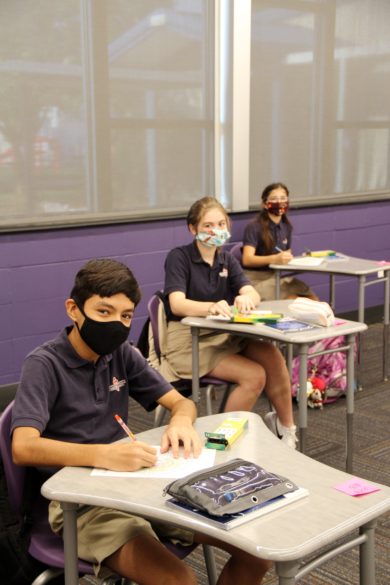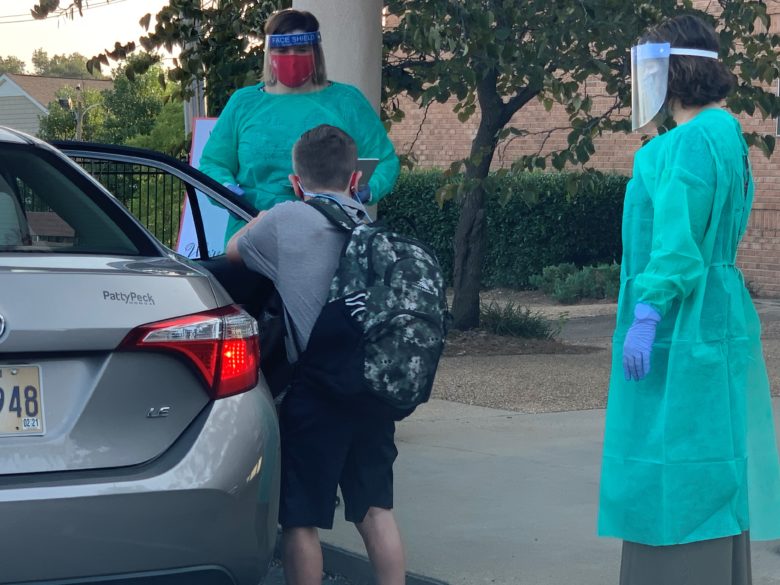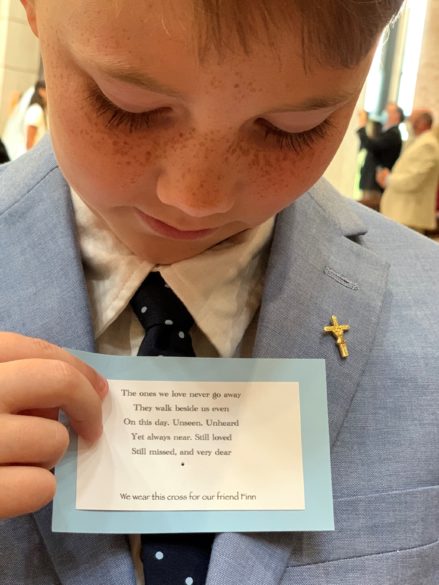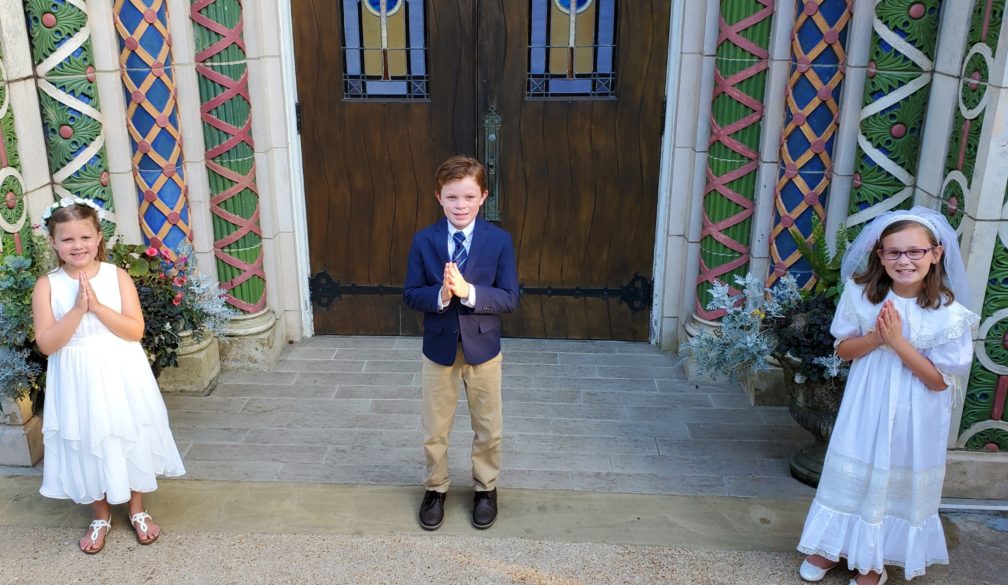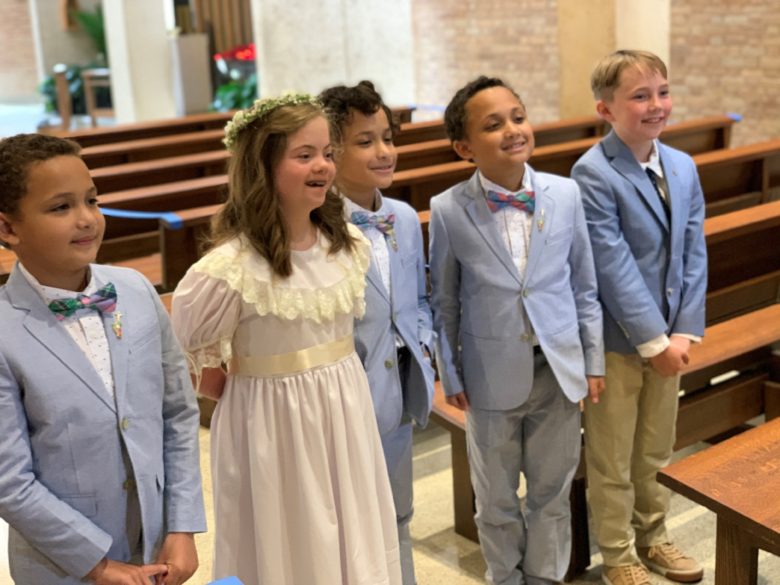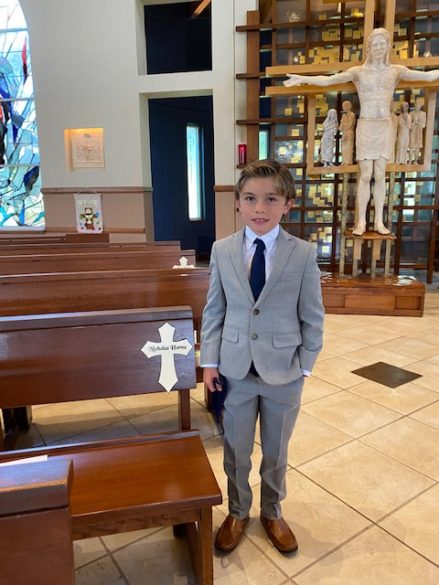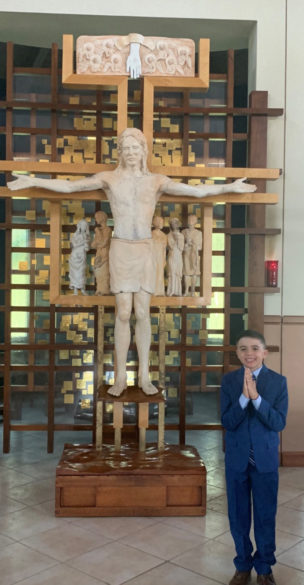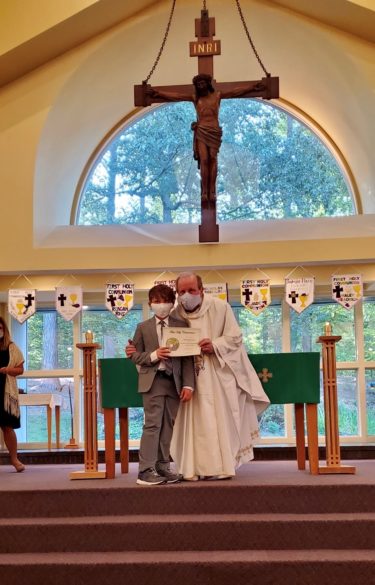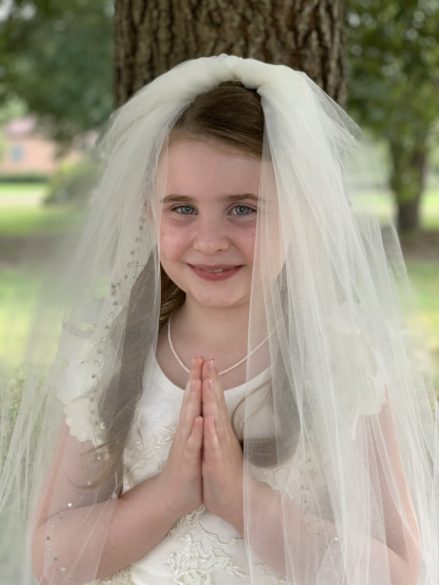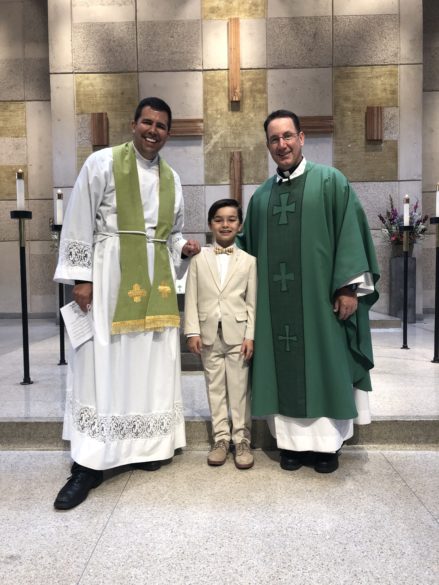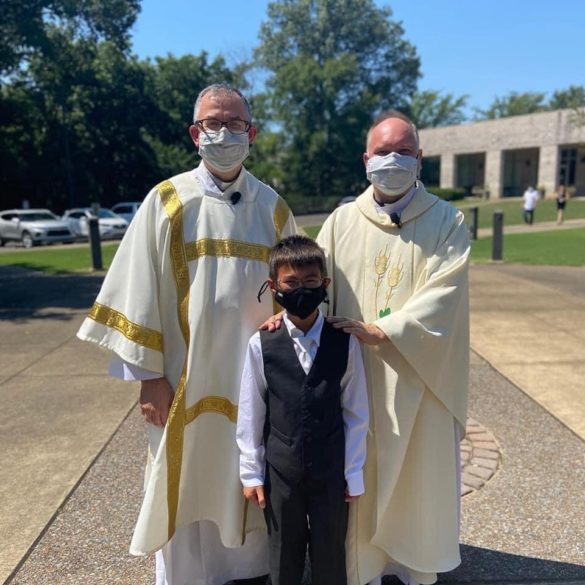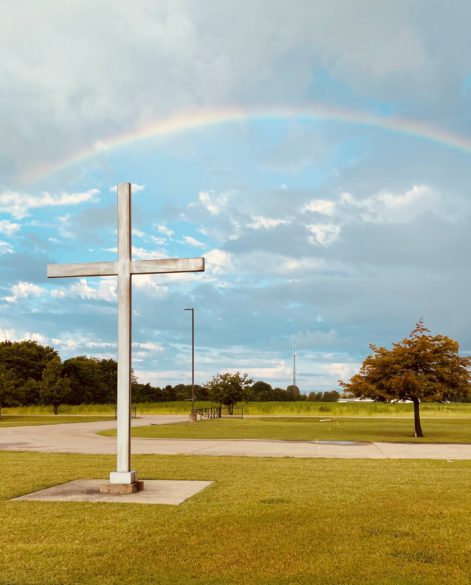
Featured photo . . . Back to School Rainbow


SPIRITUAL ENRICHMENT
VIRTUAL First Homegrown Harvest Fundraiser, Friday, Oct. 9 at 6:30 p.m. to raise awareness and funds for the seminarian trust. This will be a live online event. You can go to https://one.bidpal.net/homegrownharvest2020 to be a part. You will hear from the six men who are studying for the priesthood, as well as hear a talk from Father Jim Wehner, the President/Rector of Notre Dame Seminary in New Orleans and throughout the evening you will hear from Father Nick Adam, our seminarians and more. Details: Father Nick Adam, Vocation Director (601) 969-4020 or nick.adam@jacksondiocese.org.
VIRTUAL Dominican Sisters of Peace presents “Listening to God’s Call with Open Hearts,” a virtual discernment retreat for single women ages 18-45, Sept. 11-13. This retreat will give single Catholic women an opportunity to meet and talk with Sisters and women in formation, as well as other women who are discerning their own call to religious life. Details: Sister Bea Tiboldi, OP, (614) 400-1255 or BTiboldi@oppeace.org.
JACKSON Catholic Charities’ Journey of Hope postponed. Out of an abundance of caution, Catholic Charities has postponed its Journey of Hope for this year and has been rescheduled for Thursday, Feb. 25, 2021 at 12 p.m. There will be a meet and greet the night before, Wednesday, Feb. 24, 2021 from 6-8 p.m. The luncheon speaker will be Elizabeth Smart, who was abducted in 2002 as a 14-year old from her family’s home and was one of the most followed cases of our time. She was rescued nine months later. Through her traumatic experience, Smart has become an advocate for change relation to child abduction, recovery programs and legislation. She will appear to share her story of perseverance and hope. This inspirational event will raise money for the vital programs of Catholic Charities. Details: Catholic Charities (601) 355-8634.
JACKSON 40 Days for Life kickoff rally, 2903 North State Street, Wednesday, Sept. 23 at 12 p.m. Join in prayer and fasting as they go to the abortion facility to be a public witness for God. There will be no speaker this year, but they are asking that you pray and sing. Details: plm@prolifemississippi.org.
MAGNOLIA St. James Mission, you are invited to embark on a journey towards faith and racial healing sometime in the first week of Sept. via Zoom meetings. It is an opportunity to further and deepen our desire to follow the way of Jesus. This program is not specifically Catholic. It is universal. All are welcome. The program is not about religion; it is about human dignity and respect. If you are interested, please call or email. Details: Chris Ingrassia (301) 266-0433, gracie_eddie@yahoo.com. Website: https://justfaith.org/faith-and-racial-healing/.
PARISH, SCHOOL AND FAMILY EVENTS
HERNANDO Holy Spirit, Weight loss support group meets Tuesdays at 9 a.m. All are welcome to come each week to become healthier and happier. Details: Liz Brown (901) 331-3419.
JACKSON St. Richard, Save the Date, Special Kids Golf Tournament, Thursday, Oct. 8 from 8 a.m. to 5 p.m. at Deerfield Golf Club, Canton. Sponsorships and donation opportunities are available. Details: church office (601) 366-2335 or www.saintrichard.com.
MERIDIAN, Catholic Community of St. Joseph and St. Patrick, Father Augustine leads a novena to the Lady of Our Perpetual Help on the parish’s Facebook page Saturdays at 11 a.m. Details: church office (601) 693-1321.
VICKSBURG St. Mary, Knights of Columbus Drawdown, Sunday, Oct. 11. This event will be a “virtual” drawdown with takeout food. Cost: tickets are $75 each. Details: church office (601) 636-0115.
COVID-19 REMINDER
In person Masses are now open at many parishes within the Diocese of Jackson. Check with your local parish for details and follow guidelines in place for attendance. All over the age of two are required to wear a mask.
The obligation to attend Mass continues to be dispensed by Bishop Joseph R. Kopacz, so if you do not feel safe attending, or have an underlying health condition, or feel sick, please stay home. Be safe and stay vigilant!
Por Berta Mexidor y Joanna Puddister King
JACKSON – El 7 de agosto de 2019, al menos cuatro parroquias católicas fueron sacudidas después de que agentes del Servicio de Inmigración y Control de Aduanas de Estados Unidos allanaron plantas procesadoras de pollo en todo el estado y arrestaron a 680 trabajadores indocumentados. El día dejó a muchos niños con miedo y dolor en su primer día de escuela, ya que se quedaron sin un lugar adonde ir con sus familias arrebatadas.
Cuando algunos fueron liberados de la custodia de ICE para cuidar a sus hijos, se estableció una nueva realidad. La pérdida de ingresos, junto con un futuro imprevisible y preguntas sobre cómo sus familias pueden sobrevivir sin sus seres queridos bajo la custodia de ICE.
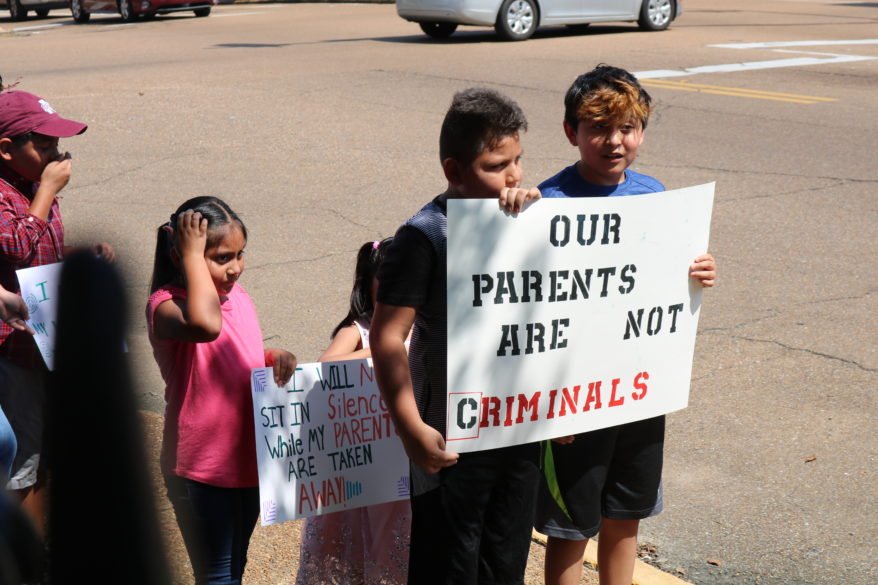
Aproximadamente siete meses después, entre comparecencias ante el tribunal, posible deportación e incertidumbre legal, volvió el dolor para estas comunidades, ahora en forma de una enfermedad que afecta a todos, sin discriminación de estatus legal. Pero para las familias afectadas en Canton, Forest, Morton y Carthage, el miedo al COVID-19 era menor que el miedo a los funcionarios de inmigración.
Cientos se han enfermado; amigos y familiares han muerto debido al COVID-19. Muchos inmigrantes indocumentados están evitando exámenes y visitas a hospitales, a pesar de las promesas de las autoridades de no verificar su estatus legal durante los exámenes médicos.
La situación no se localiza solo en Mississippi, sino también en todo el país. Varias de las familias afectadas por las redadas emigraron a otros estados para evitar otra redada. La membresía de la iglesia también se redujo por esta migración.
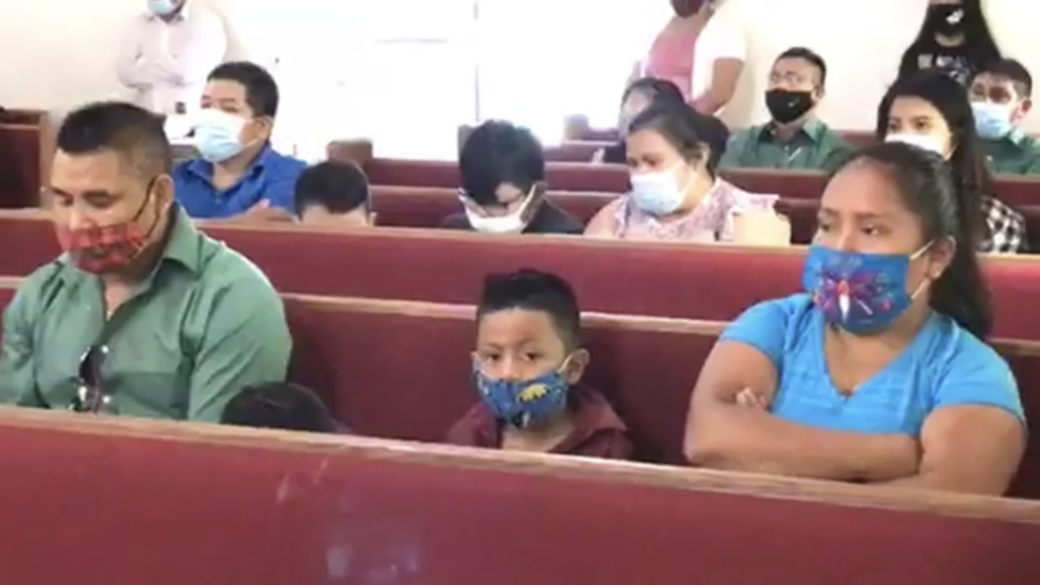
Inmediatamente después de las redadas en agosto pasado, la iglesia se convirtió en un centro humanitario de alimentos, bienes y recursos financieros para pagar el alquiler y los servicios públicos. En ese momento, los inmigrantes notaron que Dios estaba enviando varias manos de ayuda, incluso un Cardenal de Guatemala.
El 7 de noviembre de 2019, el representante Bennie Thompson celebró una audiencia del Congreso, en Tougaloo College en Jackson. Lo acompañaron dos representantes más; así como, líderes estatales, comunitarios y religiosos, incluido el padre Odel Medina, ST de St. Anne Carthage, para interrogar al agente especial de Investigaciones de Seguridad Nacional Jere Miles sobre el presunto mal manejo de la redada masiva de ICE meses antes.
Durante la audiencia, el padre Medina aprovechó la oportunidad para leer la carta de un niño de su parroquia, que se sentía herido y traumatizado a raíz de las redadas.
Poco antes de Navidad, el cardenal Álvaro Ramazzini Imeri de Guatemala, visitó las comunidades parroquiales afectadas con un mensaje de que “Dios nunca los abandona”. Consoló a las familias afectadas por la redada con palabras del Evangelio y las acompañó durante tres días de la temporada de Adviento, participando en “Las Posadas”, una recreación del intento de María y José de encontrar alojamiento antes del nacimiento de Jesús.
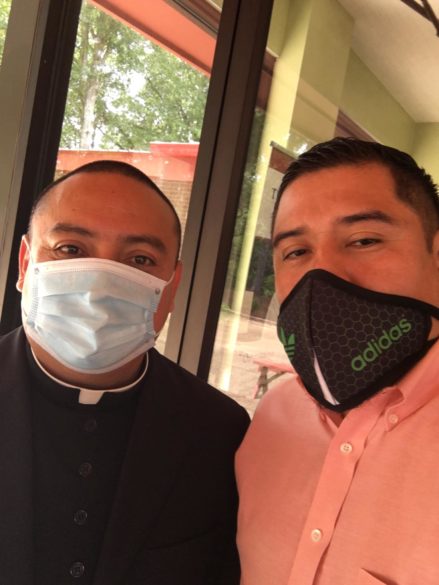
Mientras estaba en Mississippi, el cardenal Ramazzini habló con los medios de comunicación, defendiendo una “política migratoria con rostro humano” y habló de las condiciones económicas que obligan a muchos a abandonar su país de origen y pidió la eliminación de la costumbre de que los inmigrantes sean tratados como criminales. sin tener antecedentes penales.
Durante la visita del cardenal Ramazzini, Catholic Extension, que patrocinó la estancia del cardenal, anunció su Fondo Sagrada Familia, (Holy Family Fund), un programa de ayuda a las familias en los Estados Unidos que dependen económicamente de un padre que ha sido detenido o deportado por motivos de inmigración. A través del fondo, Catholic Extension ha sido fundamental para garantizar el flujo de ayuda que entrega recursos básicos a las iglesias que atienden las necesidades humanitarias y espirituales de las familias en Mississippi afectadas por las redadas de ICE.
La ayuda de Catholic Extension, Catholic Charities y muchos dentro de la comunidad católica ha ayudado a las familias afectadas en las parroquias de las comunidades de Canton, Carthage y Forest-Morton.
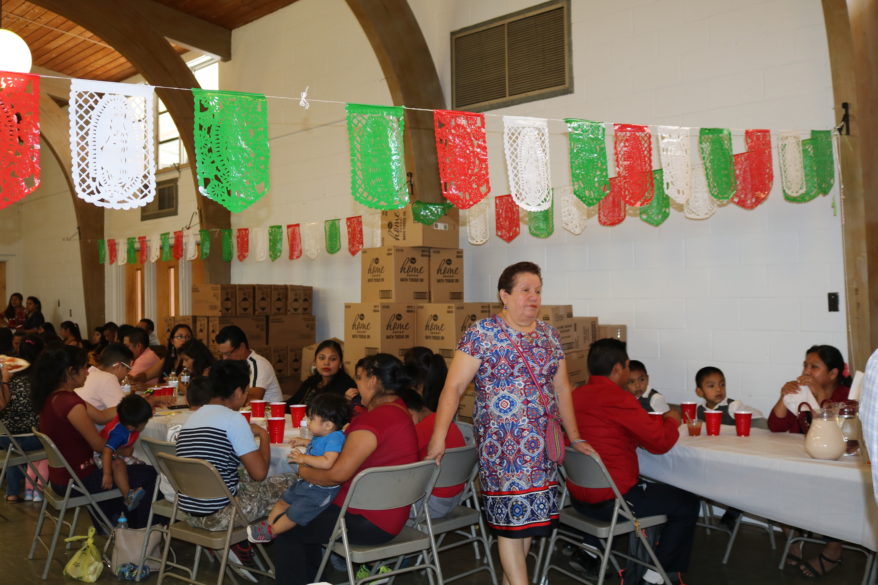
Por Joanna Puddister King
JACKSON – En enero de 2020, la Diócesis de Jackson estableció un sistema de línea directa para que las personas informen posibles fraudes, problemas de cumplimiento, violaciones de la ética y problemas de recursos humanos.
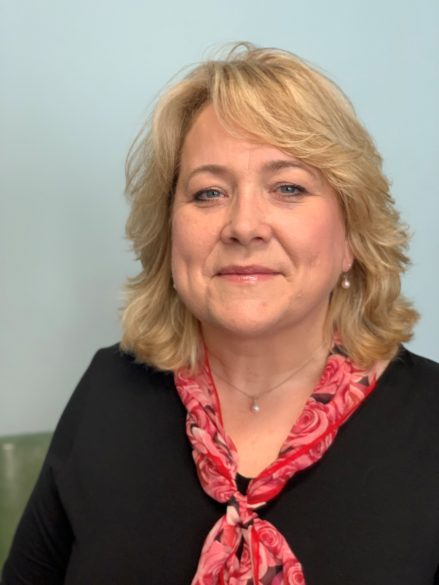
El uso de una línea directa se ha discutido durante varios años en la Conferencia Nacional Diocesana de Administradores Fiscales, a la que asisten miembros de la diócesis. Una línea directa se considera una “mejor práctica”, ya que tener una línea independiente puede ayudar a alertar y reducir la posibilidad de acciones inapropiadas o ilegales.
Carolyn Callahan comenzó a investigar plataformas de línea directa después de presentaciones en la conferencia, incluso antes de ingresar a su función actual como directora de asuntos temporales en la diócesis en mayo de 2019. Anteriormente, actuó como contralora, auditora interna y coordinadora de proyectos especiales para la diócesis, director de finanzas de la escuela St. Joseph en Madison, y como persona de apoyo contable para todas las escuelas católicas.
“Aunque siempre hemos tenido procedimientos para manejar quejas, los eventos de los últimos años nos ayudaron a ver más allá de cualquier posible uso indebido de la línea directa, por lo que nuestros feligreses y empleados tienen una manera confidencial y efectiva de informar problemas”, dice Callahan.
El sistema de línea directa de la diócesis es operado por Lighthouse Services. Durante los últimos 15 años, Lighthouse Services ha mantenido líneas directas de ética, seguridad y fraude y ahora presta servicios a más de 4,100 organizaciones entre los EE. UU. y el extranjero.
Cualquier inquietud relacionada con mala conducta financiera, fraude, problemas de cumplimiento o problemas de recursos humanos dentro de la diócesis puede informarse de forma anónima llamando al número gratuito de la línea directa o archivada en línea. Lighthouse Services presentará y procesará la información reportada.
Inmediatamente después de recibir una queja, Lighthouse Services enviará un correo electrónico a tres destinatarios designados., “Dos son empleados de la cancillería y uno es un sacerdote diocesano que no trabaja para la oficina de la cancillería”, dice Callahan.
“Si uno de los tres destinatarios se menciona en la queja, esa persona no recibe la notificación por correo electrónico y no puede acceder al informe”.
Una vez recibida, los tres destinatarios designados acceden a la queja a través del portal web seguro de Lighthouse Services. Si el denunciante presenta la denuncia de forma anónima, las personas designadas solo ven un número PIN, pero nunca un nombre. La comunicación se produce entre el reportero y las personas designadas a través del portal en línea Lighthouse. Se pueden cargar archivos y otra documentación para su revisión.
“Se produce una discusión y se crea un plan para investigar el reclamo, ya sea internamente o con un investigador externo”, dice Callahan. “Dependiendo de los resultados de la investigación inicial, se notifica al abogado diocesano y / o la policía”. La esperanza de Callahan es que cualquier persona preocupada por el fraude, los problemas de cumplimiento, las violaciones éticas y los problemas de recursos humanos se sienta cómodo sabiendo que tiene una plataforma objetiva y confidencial para presentar una reclamación que será investigada de inmediato.
“Las preguntas formuladas dentro del proceso de presentación nos da la capacidad de conocer y responder a las quejas de manera oportuna y efectiva,” dice Callahan.
Para hacer un informe, visite www.lighthouse-services.com/jacksondiocese o llame sin cargo al 888-830-0004 (inglés) o al 800-216-1288 (español).
El vicario general, el padre Lincoln Dall, que trabaja en estrecha colaboración con Callahan, dice: “La línea directa de Lighthouse es parte de nuestra estrategia general de fortalecer nuestros procedimientos de control y supervisión de los bienes y dones que Dios y su pueblo han confiado a nuestra diócesis, nuestras parroquias, y escuelas. Hemos estado mejorando tales políticas, procedimientos y controles en los últimos dos años y continuamos haciéndolo a través del acuerdo actual que tenemos con el gobierno federal.”
La información de la línea directa se publica regularmente en Mississippi Catholic y al menos trimestralmente en los boletines parroquiales. También se puede encontrar en www.jacksondiocese.org.
Virgenes y Santos
Dia del Trabajo. Labor Day. Sep. 7
Santa Teresa de Calcuta. Sep. 5
Natividad de la Santísima Virgen María – Virgen de la Caridad del Cobre, Patrona Cuba. Sep 8
San Pedro Claver. Sep. 9
Virgen de Coromoto, Patrona de Venezuela. Sep. 11
San Genaro. Sep. 19
San Pio de Pietrelcina. Sep 23
San Gerónimo. Sep. 30
Convocatoria
Campamento Virtual, para familias, auspiciado por SEPI y Extensión Católica.
Todos los viernes de septiembre y primer viernes de octubre
De 5 pm a 7 p.m.
Mas información, llamar a
Edgar Morales, 601-826-8594 o Johana Mollinedo 601-778-0678
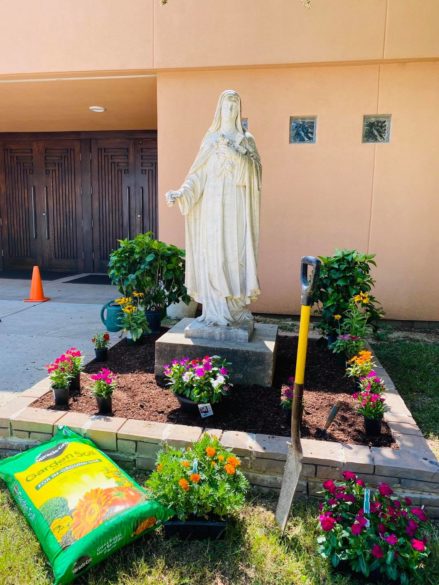
Mississippi Catholic will publish Sacrament pages in upcoming editions.
This means we need 2020 First Communion and Confirmation photos.
Due to COVID-19, we understand there may not be group shots,
so individual pictures are accepted.
email to: editor@jacksondiocese.org
Please include full names, parish, date, name of sacrament celebration and
name of photographer, if possible.
